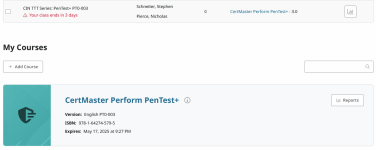Hello CINners! We have a special virtual livestream event coming up just for you! CompTIA and Dr. James Stanger will be conducting a workshop at the
AFCEA TechNetCyber Baltimore conference on May 7th, 2025.
During this session, Dr. Stanger will be joined by special guest Zach Vaughn of Vectra AI, Dr. Matt McFadden of GDIT, and Bill Newhouse of NIST for a discussion of how traditional IT and cybersecurity workflows and approaches are changing in the face of AI and Post-Quantum Computing. They will discuss topics such as:
- Analyzing today's vulnerable tech footprint: The impact of Post-Quantum Cryptography and AI on how we do things today
- AI: Hunter or hunted? A look at the attack lifecycle and today's hybrid environments - traditional and AI-based approaches
- Migrating to post-quantum encryption
- How AI and Post-Quantum are affecting traditional pen testing, analytics, and attack surface paradigms
- A practical overview of post-quantum issues and readiness: What we've learned from past rollouts
- Analyzing your problem surface for post-quantum readiness
- Upskilling opportunities
We are pleased to offer this event to CIN members in conjunction with the
AFCEA TechNet Baltimore conference attendees. Your participation will even include a Participation of Attendance certificate valid for two hours of CE credit for CompTIA certifications.
What: CIN TTT Series A+ Core 1 1202 10 sessions
When: May 7, 2025 12:30-2:30 PM Central Daylight Time
Who: Dr. James Stanger, Zach Vaughn, Dr. Matt McFadden, Bill Newhouse
Where: ON24
REGISTER HERE


 Received exam voucher yesterday, passed the exam today!
Received exam voucher yesterday, passed the exam today!









